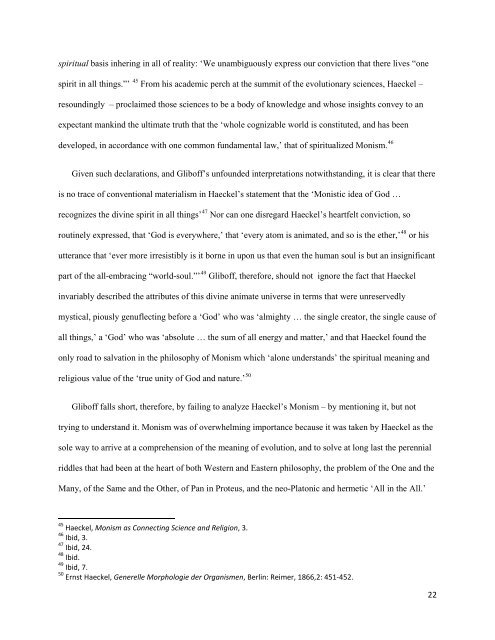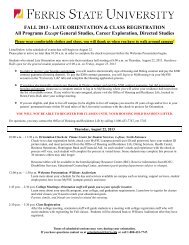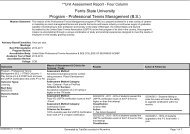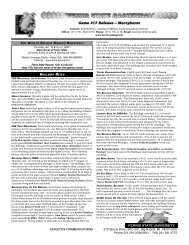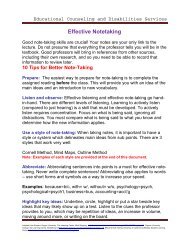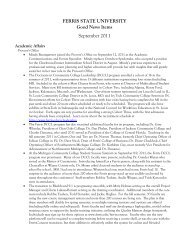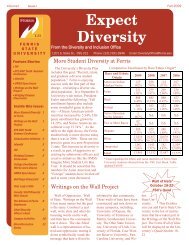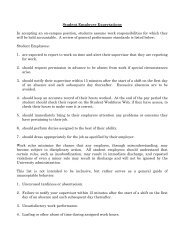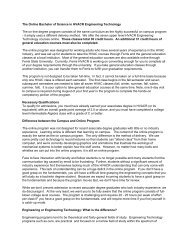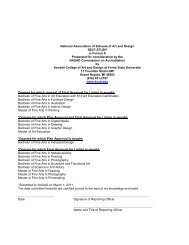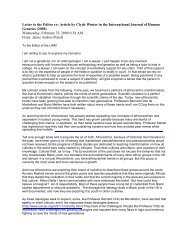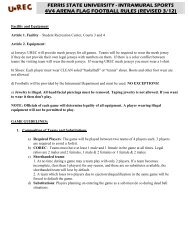Daniel Gasman - Ferris State University
Daniel Gasman - Ferris State University
Daniel Gasman - Ferris State University
Create successful ePaper yourself
Turn your PDF publications into a flip-book with our unique Google optimized e-Paper software.
spiritual basis inhering in all of reality: ‘We unambiguously express our conviction that there lives “one<br />
spirit in all things.”’ 45 From his academic perch at the summit of the evolutionary sciences, Haeckel –<br />
resoundingly – proclaimed those sciences to be a body of knowledge and whose insights convey to an<br />
expectant mankind the ultimate truth that the ‘whole cognizable world is constituted, and has been<br />
developed, in accordance with one common fundamental law,’ that of spiritualized Monism. 46<br />
Given such declarations, and Gliboff’s unfounded interpretations notwithstanding, it is clear that there<br />
is no trace of conventional materialism in Haeckel’s statement that the ‘Monistic idea of God …<br />
47<br />
recognizes the divine spirit in all things’ Nor can one disregard Haeckel’s heartfelt conviction, so<br />
routinely expressed, that ‘God is everywhere,’ that ‘every atom is animated, and so is the ether,’ 48 or his<br />
utterance that ‘ever more irresistibly is it borne in upon us that even the human soul is but an insignificant<br />
part of the all-embracing “world-soul.”’ 49 Gliboff, therefore, should not ignore the fact that Haeckel<br />
invariably described the attributes of this divine animate universe in terms that were unreservedly<br />
mystical, piously genuflecting before a ‘God’ who was ‘almighty … the single creator, the single cause of<br />
all things,’ a ‘God’ who was ‘absolute … the sum of all energy and matter,’ and that Haeckel found the<br />
only road to salvation in the philosophy of Monism which ‘alone understands’ the spiritual meaning and<br />
religious value of the ‘true unity of God and nature.’ 50<br />
Gliboff falls short, therefore, by failing to analyze Haeckel’s Monism – by mentioning it, but not<br />
trying to understand it. Monism was of overwhelming importance because it was taken by Haeckel as the<br />
sole way to arrive at a comprehension of the meaning of evolution, and to solve at long last the perennial<br />
riddles that had been at the heart of both Western and Eastern philosophy, the problem of the One and the<br />
Many, of the Same and the Other, of Pan in Proteus, and the neo-Platonic and hermetic ‘All in the All.’<br />
45<br />
Haeckel, Monism as Connecting Science and Religion, 3.<br />
46<br />
Ibid, 3.<br />
47<br />
Ibid, 24.<br />
48<br />
Ibid.<br />
49<br />
Ibid, 7.<br />
50<br />
Ernst Haeckel, Generelle Morphologie der Organismen, Berlin: Reimer, 1866,2: 451-452.<br />
22


